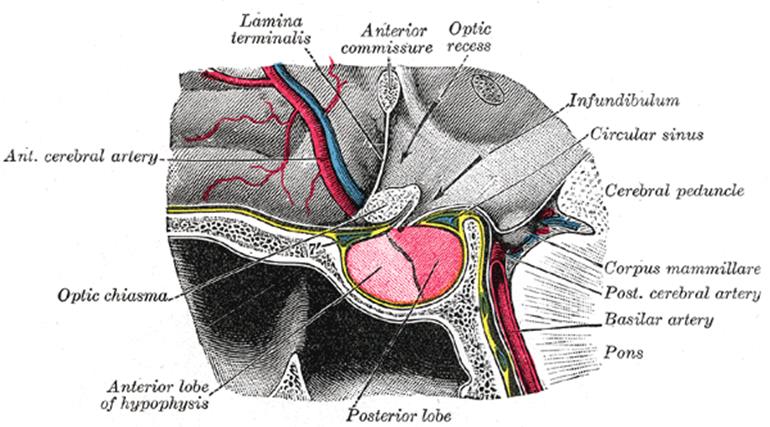Hypopituitary issues keep cropping up. Several people here have been on antiepileptic medicines so might have experiences to report.
Lancet Diabetes Endocrinol. 2014 May 30. pii: S2213-8587(14)70081-6. doi: 10.1016/S2213-8587(14)70081-6. [Epub ahead of print]
Treatment of hypopituitarism in patients receiving antiepileptic drugs.
Paragliola RM1, Prete A1, Kaplan PW2, Corsello SM1, Salvatori R3.
Author information
1Unit of Endocrinology, Facoltà di Medicina Università Cattolica del Sacro Cuore, Rome, Italy.
2Department of Neurology, Johns Hopkins University School of Medicine, Baltimore MD, USA.
3Department of Medicine, Division of Endocrinology, Metabolism and Diabetes and Pituitary Center, Johns Hopkins University School of Medicine, Baltimore MD, USA. Electronic address: salvator@jhmi.edu.
Abstract
Evidence suggests that there may be drug interactions between antiepileptic drugs and hormonal therapies, which can present a challenge to endocrinologists dealing with patients who have both hypopituitarism and neurological diseases. Data are scarce for this subgroup of patients; however, data for the interaction of antiepileptic drugs with the pituitary axis have shown that chronic use of many antiepileptic drugs, such as carbamazepine, oxcarbazepine, and topiramate, enhances hepatic cytochrome P450 3A4 (CYP3A4) activity, and can decrease serum concentrations of sex hormones. Other antiepileptic drugs increase sex hormone-binding globulin, which reduces the bioactivity of testosterone and estradiol. Additionally, the combined oestrogen-progestagen contraceptive pill might decrease lamotrigine concentrations, which could worsen seizure control. Moreover, sex hormones and their metabolites can directly act on neuronal excitability, acting as neurosteroids. Because carbamazepine and oxcarbazepine can enhance the sensitivity of renal tubules, a reduction in desmopressin dose might be necessary in patients with central diabetes insipidus. Although the effects of antiepileptic drugs in central hypothyroidism have not yet been studied, substantial evidence indicates that several antiepileptic drugs can increase thyroid hormone metabolism. However, although it is reasonable to expect a need for a thyroxine dose increase with some antiepileptic drugs, the effect of excessive thyroxine in lowering seizure threshold should also be considered. There are no reports of significant interactions between antiepileptic drugs and the efficacy of human growth hormone therapy, and few data are available for the effects of second-generation antiepileptic drugs on hypopituitarism treatment.
Copyright © 2014 Elsevier Ltd. All rights reserved.
PMID: 24898833
ncbi.nlm.nih.gov/pubmed/248...
Rod
